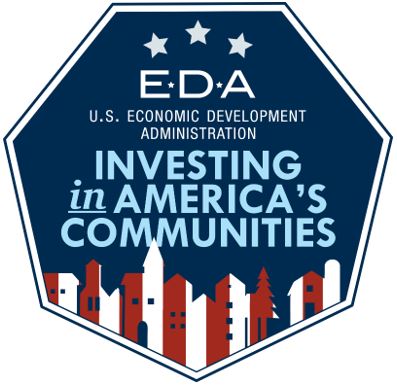The U.S. Department of Commerce’s Economic Development Administration (EDA) announced $3 B in programs funded by the American Rescue Plan Act (ARPA). EDA will invest in infrastructure, innovation, and workforce training to create good-paying American jobs and strengthen our nation’s global economic competitiveness focused on the following programs:

- Build Back Better Regional Challenge ($1 B). This program will provide transformational investments to 20 to 30 regions across the country to revitalize their economies. The challenge will invite regional coalitions to apply for funding to implement three to eight projects aligned with a cohesive regional development strategy, totaling $25 M -$75 M, and up to $100 M. These regions will have the opportunity to accelerate recovery and inclusive economic growth by developing new industries or expanding existing ones through planning, infrastructure development, workforce training, innovation and commercialization, access to capital, and more.
- Coal Communities Commitment ($300 M). This program will address challenges in coal dependent communities by allocating $100 M from the Build Back Better Regional Challenge and $200 M of Economic Adjustment Assistance Challenge to these regions.
- Good Jobs Challenge ($500 M). EDA’s Good Jobs Challenge addresses the structural barriers that American workers face head-on. The program will help to ensure that workers can develop in-demand skills that lead to good jobs and long-term careers. EDA will allocate $500 M to invest in building and strengthening regional workforce training systems and sector-based partnerships, with a focus on programs targeted at women, people of color, and historically underserved communities. EDA’s grantees will help workers complete training programs, including Registered Apprenticeships, and secure good-paying jobs by providing the wrap-around services that they need to succeed, like childcare and transportation. This program will encourage community organizations, training providers, and unions to partner with employers to create the talent pipeline to meet industry needs for today and the future and create concrete pathways for American workers to secure good-paying jobs.
- Economic Adjustment Assistance Challenge ($500 M). This is EDA’s most flexible program and will award grants to hundreds of communities across the country to support efforts to plan, build, innovate, and put people back to work through projects tailored to meet local needs.
- Indigenous Communities Challenge ($100 M). Through the Indigenous Communities Challenge, EDA will allocate $100 M specifically for Indigenous communities, which were disproportionately impacted by the pandemic. EDA will work hand-in-hand with Tribal Governments and Indigenous communities to develop and execute the economic development projects they need to recover from the pandemic and build economies for the future. Indigenous communities are also encouraged and eligible to apply to all of EDA’s other programs.
- Travel, Tourism, and Outdoor Recreation Grants ($750 M). EDA will distribute $510 M in State Tourism Grants that will be dispersed quickly to address the immediate needs of the tourism industry by investing in marketing, infrastructure, workforce, and other projects to rejuvenate safe leisure, business, and international travel. In addition, through Regional Tourism Grants, EDA will allocate $240 M for competitive grants to further invest in infrastructure, workforce, or other projects to support recovery and resilience in the communities hardest hit by disruptions in the travel, tourism, and outdoor recreation sectors.
- Statewide Planning, Research and Networks Grants ($90 M). Building back better means developing equitable and resilient local economies that can withstand future economic shocks. EDA will allocate $59 M in State Planning grants to support this effort. Similarly, EDA has allocated $31 M for Communities of Practice and Research grants to evaluate implementation by EDA and its grantees and extend technical assistance to support EDA’s ability to work with and build capacity with new and existing grantees.
Through the implementation of these programs, EDA will be a player as region’s look for funding to recover from the impacts of COVID 19. The Montrose Group is experienced in assisting communities gain EDA funding and please contact Jamie Beier Grant at [email protected] if you need assistance with EDA or other economic development matters.